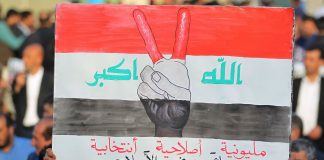With no real growth in wages over the last two years and the poverty level increasing, Russians’ pessimism and desire to protest have grown instead. There have been a growing number of small, localized protests on specific issues related to the economy, particularly pensions. This has put pressure on the Kremlin to find a solution — especially before next year’s elections.
There are a number of contradictory signals coming from the Kremlin about how it plans to address the problem. It does not appear that there are plans to further tax the regions. Such a strategy was attempted in 2012, which combined with low oil prices has led to the current economic situation. More likely the strategy will be a combination of spending cuts, both in social services and defense, taxation of oil companies, borrowing abroad, selling Eurobonds and using up the reserves. Our calculations suggest Russia has enough reserves to continue like this for about three years. After that, something has to give.
To read more about this, check out our Deep Dive on President Vladimir Putin’s strategy to maintain power.







